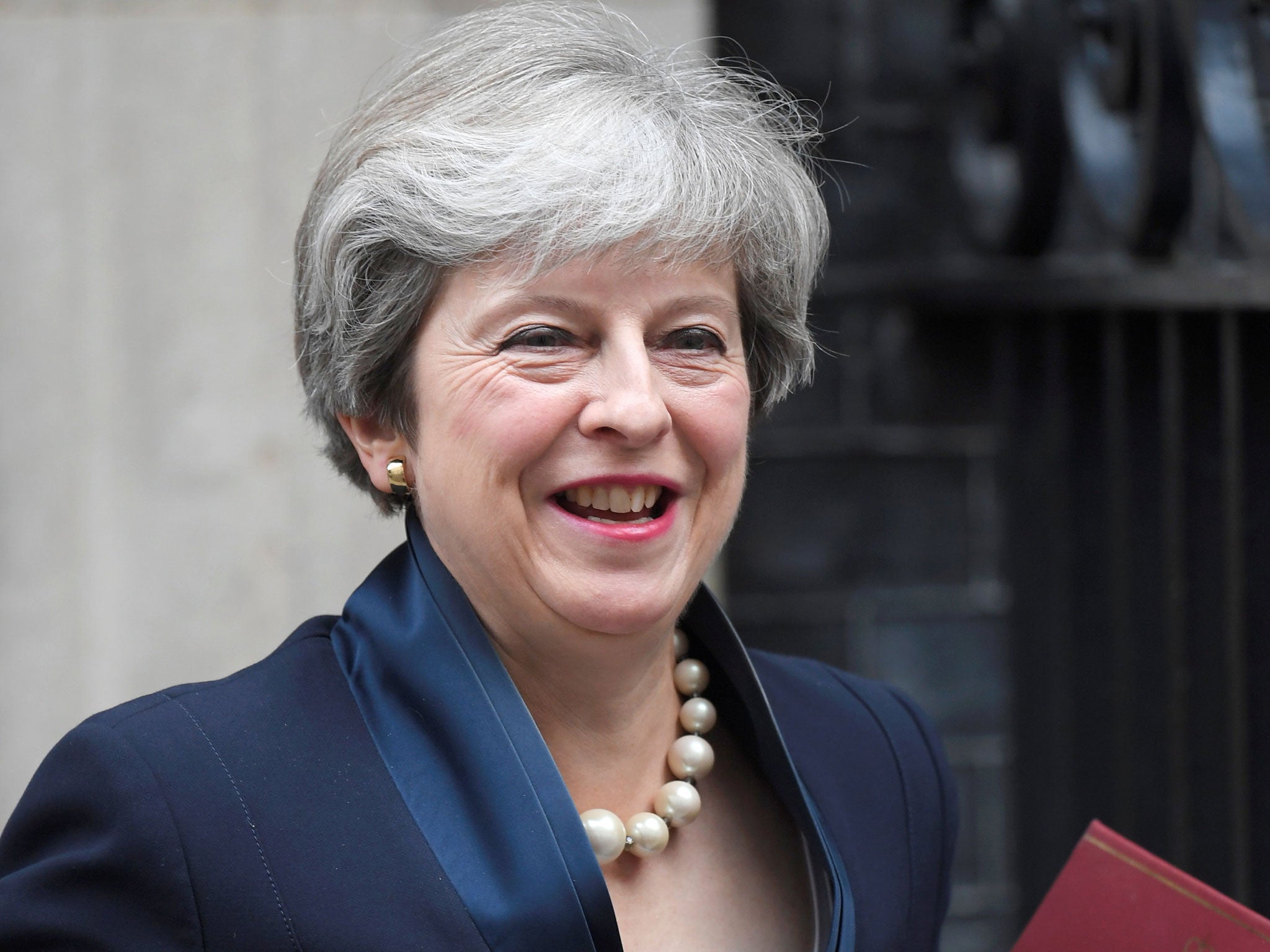We should be glad Theresa May has finally decided to shake the magic money tree for some public sector workers
A government in such a precarious political position, not least over Brexit, cannot possibly risk a prolonged wave of strikes on public services as winter draws in

Your support helps us to tell the story
From reproductive rights to climate change to Big Tech, The Independent is on the ground when the story is developing. Whether it's investigating the financials of Elon Musk's pro-Trump PAC or producing our latest documentary, 'The A Word', which shines a light on the American women fighting for reproductive rights, we know how important it is to parse out the facts from the messaging.
At such a critical moment in US history, we need reporters on the ground. Your donation allows us to keep sending journalists to speak to both sides of the story.
The Independent is trusted by Americans across the entire political spectrum. And unlike many other quality news outlets, we choose not to lock Americans out of our reporting and analysis with paywalls. We believe quality journalism should be available to everyone, paid for by those who can afford it.
Your support makes all the difference.The last time a minority government attempted to keep a cap on public sector pay, it led to the so-called Winter of Discontent and the then-governing party was out of power for 18 years. Much has, of course, changed since 1979, but two eternal verities of political economy are clearly behind the Government’s decision to at least partly lift the 1 per cent limit on increases that has been in place since 2013.
The first is that the demand for public sector workers cannot be satisfied on current wage rates; the second is that a government in such a precarious political position, not least over Brexit, cannot possibly risk a prolonged wave of strikes on public services as winter draws in.
Theresa May ought to have a dread fear of being overtaken by events she will not be able to control. Perhaps, after her near-death experience after the general election, her instinct for survival is becoming better developed. She seems keener on shaking the magic money tree, at any rate.
Plainly, then, some public services are becoming unsustainable at current wage levels. The most acute problem of many is indeed in the prisons. With the police service, this is the first sector to see the regime of austerity relaxed. Given everything, including the new ban on smoking tobacco on prison premises, it is surprising our jails haven’t witnessed even more unrest than they have. Society’s appetite for retribution has rarely been matched by a willingness to fund the expansion in prisons, but things have recently become extremely dangerous, hence the Ministry of Justice’s emergency measures on prison officer numbers. More prison officers, modestly better pay and more investment in the service generally may lift morale from its nadirs among prisoners and their jailers alike. It might even help with some of the Prevent strategies to counter the prison cultures of radicalisation, alienation and terrorism, though that is probably too much to expect.
Much the same argument applies to the police, the other beneficiaries of a loosening in the discipline of pay restraint. There again staff shortages – especially acute in high housing cost areas in London and the South-east – are making the duties of policing nearly impossible to sustain. Public whinges about the failure of the police to respond to distressing crimes is due, in large part, to a lack of resources and lack of officers, rather than waste, bureaucracy or political correctness (gone mad or otherwise). Again, recruitment and retention will be ameliorated if salaries are allowed to settle closer to a market rate.
Yet all of that leaves many other workers across the public services, notably in the NHS and education, with little comfort. While the prison and police officers and firefighters (as local authority staff) are finding themselves in a – mildly – privileged position, those who save lives every day on the wards are left feeling even less appreciated.
More to the economic point, NHS trusts cannot fill the vacancies they have. It is worth mentioning – and not gratuitously – that such shortages will become still more dangerous to patient care as EU nationals find themselves made less welcome in the UK post-Brexit. In time, British nationals may step forward to be trained and to fill these posts, but that will take much time, especially as the subsidies in nursing education are being abolished. The annual NHS winter crisis may be worse than usual this year – and exacerbated by strikes. The Government should look again at certain parts of the NHS, if it wants to avoid picket lines outside hospitals.
For once, austerity in the public sector – necessary during the financial crisis – finds itself on the wrong side of the laws of supply and demand. The dam will burst, and it is as well that it does so in as an orderly fashion as can be attempted. Sooner or later, ministers will be forced to cave in.
If the public wants to fill the many vacancies in the public services and enjoy the level of service they have a right to expect, then they’ll need to offer competitive wages and conditions. The Treasury will have the usual headache about finding the funding; and, one way or another, it will need to come from taxpayers. That is the third eternal verity that this particular crisis reveals to us.
Join our commenting forum
Join thought-provoking conversations, follow other Independent readers and see their replies
Comments